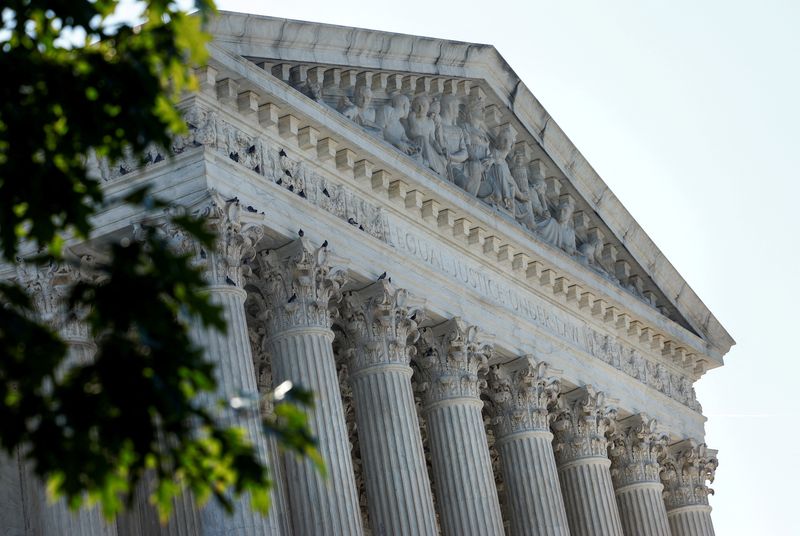By John Kruzel
WASHINGTON (Reuters) - The U.S. Supreme Court on Thursday reinforced the power of law enforcement authorities to retain seized property belonging to people not charged with a crime, ruling in favor of Alabama officials who were sued by two women whose cars were held for more than a year.
In a 6-3 ruling powered by its conservative majority, the justices affirmed a lower court's dismissal of the lawsuits by the two plaintiffs, who were denied prompt hearings to reclaim vehicles seized by police in crimes committed by other people.
The three liberal justices in a dissent called the majority's reasoning "deeply flawed," and a libertarian legal group called the ruling a major blow to private property rights.
The case involved the legal process that innocent property owners are due under the U.S. Constitution's 14th Amendment. At issue was whether preliminary hearings - opportunities that may allow owners to regain their property more quickly than a different process known as a forfeiture hearing - are necessary to fulfill constitutional due process requirements.
Conservative Justice Brett Kavanaugh, writing for the majority, said preliminary hearings, also known as retention hearings, are not legally required.
"In civil forfeiture cases involving personal property such as cars," Kavanaugh wrote, "the (Constitution's) Due Process Clause requires a timely forfeiture hearing but does not require a preliminary hearing."
Civil forfeiture laws permit the federal and state governments to seize and often permanently keep vehicles, real estate and other property alleged to have been used to carry out or facilitate a crime - even when the owner has not been convicted or even charged with a criminal offense.
Some state laws require government officials to promptly show that seized property is likely involved in illegal activity and, failing that, return the assets while court proceedings over the owner's ultimate right to the property play out.
Alabama was previously among the U.S. states that did not mandate a prompt pretrial retention hearing in which the government must justify the property seizure, though the state revised its civil forfeiture law while the case was pending.
Justice Sonia Sotomayor criticized the court's ruling in a dissent that was joined by fellow liberal Justices Elena Kagan and Ketanji Brown Jackson.
"The majority today holds that due process never requires the minimal check of a retention hearing before a police officer deprives an innocent owner of her car for months or years," Sotomayor wrote.
Plaintiff Lena Sutton's vehicle was seized while it was being driven by a friend who borrowed it and was arrested for methamphetamine possession. Sutton's case was consolidated with that of a second plaintiff, Halima Culley, whose car was seized when her college-aged son was arrested for marijuana possession while driving it.
Despite their pleas to law enforcement to return their property, Sutton had to wait 14 months and Culley 20 months before courts determined that their cars should be returned.
The plaintiffs filed federal lawsuits arguing that the state government's failure to provide a prompt court hearing to let them try to reclaim their property violated the 14th Amendment's promise that government not "deprive any person of life, liberty or property without due process of law."
Federal judges ruled against the plaintiffs in their lawsuits. The Atlanta-based 11th U.S. Circuit Court of Appeals affirmed those decisions. President Joe Biden's administration sided with Alabama in the case.

Kirby (NYSE:KEX) Thomas West, an attorney at the libertarian public interest law firm Institute for Justice, called Thursday's ruling "a big loss for private property rights" that would cause civil forfeiture cases to "languish for months or years before they are resolved."
"Meanwhile owners of seized vehicles will scramble to find a way to get to work, take their kids to school, run errands and complete other essential life tasks," West said.